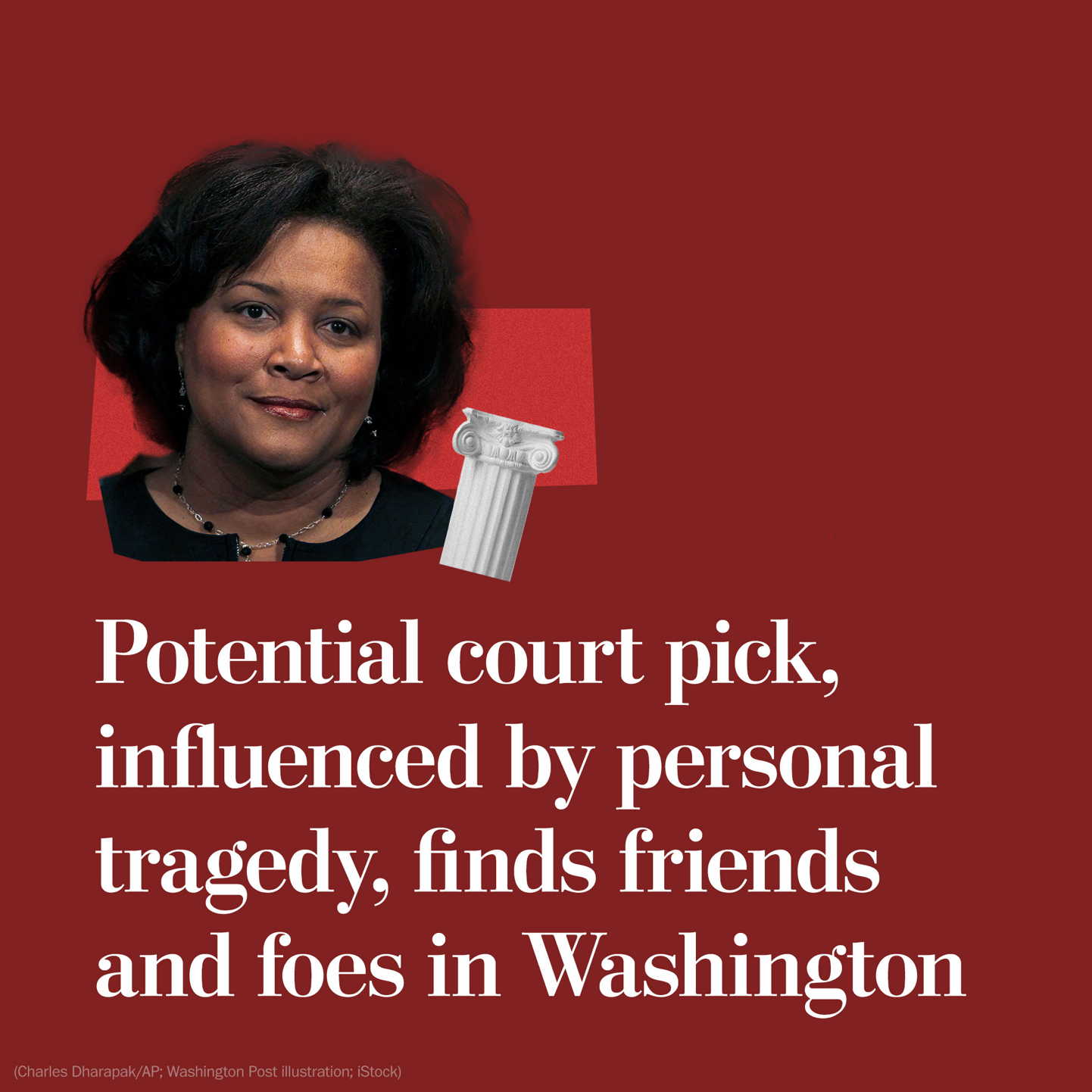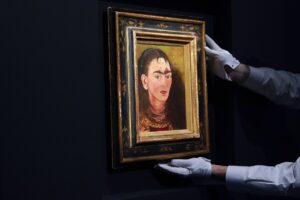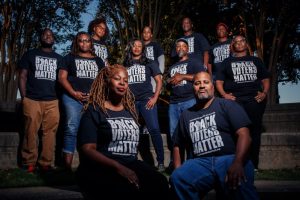J. Michelle Childs had recently moved with her mother to Columbia, S.C., in 1980 when the 14-year-old got the news about her father, who had stayed behind in violence-scarred Detroit as they fled in search of a safer life.
“I received a phone call that my father, a police officer, had died in Detroit,” Childs recalled in the draft of a 2018 speech. A handwritten notation on the draft, reviewed by The Washington Post, added the cause of death: “from gunshot wounds.”
“I was devastated,” Childs, now a federal judge, wrote in the draft, which didn’t offer any more details about his death — a topic she has rarely discussed in public. She described how it happened as she “was looking to find my way as an outsider in a new state with odd laws.”
Stepping into a foreign world in the recently desegregated South, she did not initially reveal to some of her closest friends her personal legacy of violence and grief and loss, according to those who have known her for decades. But she said in the speech recounting her father’s death that “even at a young age” she made herself a promise: “No one would stop me from becoming all that I was destined to be.”
Now, if her supporters such as the powerful House Majority Whip James E. Clyburn (D-S.C.) have their way, Childs would be the first Black woman on the Supreme Court.
Her consideration for the highest court has stirred up unusually staunch opposition from some liberal groups who question her record as a corporate lawyer and call her a “union-buster” — a charge that her defenders, including one of the state’s biggest unions, dispute.
Childs would bring an unusual perspective to the Ivy League-dominated court as a Southerner who received scholarships to attend state schools and who worked her way up through jobs at a South Carolina labor division and as a state judge.
A review of thousands of pages of documents she has submitted to a Senate committee and interviews with close associates and other observers makes it clear that she’s been unusually outspoken during her judicial career on social issues that directly relate to her childhood traumas and her experiences pushing boundaries as a Black woman in the South.
Raised after her father’s death by a single mother, Childs was the first in her family to attend college and was a beauty pageant winner who once considered modeling. She has spent much of her life overcoming discrimination and breaking barriers as the first Black woman to become a partner at a major South Carolina law firm, and then as a state and federal judge, where she made rulings that went against the state’s prevailing politics. She has stepped beyond her federal judgeship to speak out on social issues such as racial discrimination, the disproportionate incarceration of Blacks, and gun violence.
In dozens of speeches over the years, as well as in interviews and court proceedings, Childs has characterized herself as a jurist shaped by her background who struggled to understand why so many young people wind up before her destined to spend decades in jail.
“It is not uncommon for me to see persons ages 17 to 23 to have no prior record … to have committed the crime of murder as their first offense,” she said in a 2008 speech. “I am still searching for answers.”
A defining childhood
Childs’s father, Ralph “Pete” Childs, was a barrier breaker long before she would be talked about as a potential breakthrough nominee. He twice won the Michigan State junior championship in table tennis, or ping-pong, then won the junior men’s national titles in both the United States and Canada. By 1963, he was one of 12 people to represent the United States in competitions across the world, eventually winning more than 200 trophies, according to an obituary. His victories were noted in publications including the New York Times, Sports Illustrated and Jet magazine.
In 1966, his daughter Michelle was born. He divorced her mother, who worked as a personnel manager for Michigan Bell, when she was young, Michelle later said, and in 1970, joined the Detroit police department. He served there until what his obituary vaguely called his “untimely death” in August 1980, a few months after Michelle’s mother had moved the rest of the family to Columbia. The exact circumstances of his death are unclear. In addition to his daughter’s statement that he died of gunshot wounds, Clyburn said in an interview that “It was traumatic, I know from her that he was killed.” He said he has not discussed the circumstances of the death with Childs.
Childs and other family members contacted for this article did not respond to request for comment.
Childs’s sudden departure from Detroit, and her father’s violent death, shaped her life, according to Clyburn. “With that kind of traumatic background, her mother moved out of Detroit because of the crime and everything else surrounding it,” Clyburn said.
Jean Toal, a former chief justice of the South Carolina Supreme Court who has known Childs for decades, said in an interview: “Her mom was just so frightened about what life would be like up there that she moved to South Carolina. That turned out to be a very wonderful thing.”
Childs entered middle school a decade after Columbia instituted a school desegregation plan modeled on a proposal from the Nixon administration. Her class was roughly half Black and half White, which remained the case through high school, according to classmate Dana Gordon. Gordon said Childs at the time never discussed her father’s death.
“It probably was a welcoming release, obviously a slower environment in Columbia,” Gordon said. “That probably helped in her growth and development, being in South Carolina, moving away from what happened.”
Childs became high school valedictorian and class president, and also won numerous youth beauty pageants. She earned a scholarship to the University of South Florida and, in 1986, won the Miss Black Florida pageant — prompting an event that foreshadowed her legal career.
“The pageant director reneged on prizes so I sued him,” Childs later told a South Carolina legislative committee. It was, in effect, her first lawsuit. She won a judgment of $3,218, according to court records.
The most popular and interesting stories of the day to keep you in the know. In your inbox, every day.
After thinking that she would become a professional model, she had a “soul-searching” talk with mother, Shandra, and decided to focus on her education and career, according to a Tampa Tribune account at the time. She told her hometown paper, the Columbia Record, that her goal was to practice corporate law.
She went into private law practice in Columbia after earning a degree from the University of South Carolina School of Law and then, in 2000, became the first Black woman partner at a major South Carolina law firm, now called Nexsen Pruet, where she was part of the employment law team.
“South Carolina is still very tough terrain in terms of diversity in the legal profession,” said Danielle Holley-Walker, who was the first Black woman on the tenured faculty of the University of South Carolina School of Law and is now dean of Howard University School of Law. “There was no blueprint for what Michelle Childs was doing.”
Childs’s work at the law firm has recently drawn scrutiny from liberal groups such as Our Revolution, which has alleged that she “repeatedly worked on behalf of employers against unionization drives.” A spokesman for the group, asked to provide an example of such an effort, noted that Childs had represented employers who were sued for discrimination.
Vickie Eslinger, who worked closely with Childs at the firm, said in an interview it was “ludicrous” to call Childs a union buster or antilabor. Eslinger said Childs worked for both corporations and clients who sued companies. Charles Brave, president of the South Carolina AFL-CIO, said in an interview that he rejected criticism of Childs as antilabor and has written a letter to President Biden endorsing her for the Supreme Court.
Childs left private practice after nine years — including the last year as a partner — to join the state agencies regulating labor and workers’ compensation. Six years later, Childs won an election held within the General Assembly to a state court, where she heard thousands of criminal cases, many of them involving young offenders and people of color, she later said.
“Day in and out, she would have seen hundreds of people come in front of her, ranging from simple possession of drugs to multiple murders,” said Jim May, who appeared before her many times in state court as a public defender.
President Barack Obama in 2009 nominated her to the U.S. District Court. She won bipartisan support for the job, including from Sen. Lindsey O. Graham (R-S.C.), who said in an interview that Childs’s personal story makes her appealing across the political spectrum. She is “definitely in the liberal camp, but having said that, I think she’s highly qualified and would bring some diversity to the court, not just as an African American woman,” Graham said. “She has walked a path more familiar to the average American than many people on the court.”
She won Senate approval on a voice vote — meaning no roll call was needed — and would soon use her position to stake out politically charged decisions.
In 2014, she ruled that a South Carolina couple’s out-of-state same-sex marriage must be recognized in the state — a full year before the U.S. Supreme Court legalized the practice nationwide. In 2020, she ruled against a South Carolina requirement that absentee voters have their ballots signed by a witness, citing the pandemic. Republicans said the decision favored Democratic voters, and it was appealed to the U.S. Supreme Court, which overruled her. Last year, Childs rejected a request by employees at a power company to invalidate a mandate that they get a coronavirus vaccine.
And beyond her casework, Childs has increasingly spoken out on social and racial issues — drawing on her painful childhood and her experiences as a Black woman in the courts.
Childs said in a 2021 speech that diversity in the judiciary “is imperative to adequately reflect the multitude of backgrounds, racial and ethnic constitutions and cultures, experiences, and perspectives that make up our society.” She put it in personal terms in a 2014 interview with Law360, saying, “When a litigant who’s a person of color walks in, you can just see in their eyes how much it adds more credibility to the court when they see someone who looks like them. It’s not to say you’re wedded to a certain decision, but it makes people feel inherently that the system is more fair to them.”
In a paper titled “Implicit Bias in the Courtroom,” she wrote that “research has shown that white jurors show racial bias when a case is not viewed as ‘racially charged’ ” but that “white jurors’ bias disappeared when race was made a central topic in the case.” She said that promoting “colorblindness can lead to more implicit bias.” She concluded that jurors can be encouraged to acknowledge biases, which should help jurors to act in a manner that is “truly impartial.”
Her 2018 speech at a middle school in Orangeburg, S.C., where she referred to her father’s death by gunshot wounds, provided a window into how her work has been shaped by her life experiences. The text of the speech is among thousands of pages of documents she recently submitted to the Senate Judiciary Committee in preparation for nomination to the D.C. Circuit Court, which was postponed when she came under consideration for the Supreme Court.
“Many times when I step into criminal court, it looks like a sea of African-American defendants, victims, and their families,” the typewritten version of the speech initially said. “African Americans are disproportionately represented in our prison systems. In this country, African Americans are imprisoned at [a] rate more than five times of whites; one in every ten black children has a parent behind bars, compared to about one in every sixty white children having a parent behind bars. The crisis has persisted for so long that it has nearly become an accepted norm.”
In a notation, Childs crossed out that part of the speech, substituting a handwritten sentence about young victims of crime. Then, in a phrase that could have referred to the impact of her father’s death or court cases she had overseen, she said, “The effects of gun violence extend far beyond those struck by a bullet: gun violence shapes the lives of millions of children who witness it, know someone who was shot, or live in fear of the next shooting.”
All of this, she said, showed why the nation has a long way to go, delivering a conclusion that tracks the view of many Democratic politicians.
“We bear witness to the growing gap of education and income inequality across the nation, crumbling schools in many cities and towns, and a school-to-prison pipeline that shuttles people from under-resourced schools into overcrowded jails.
“Justice,” the judge wrote, “still eludes us.”
Alice Crites contributed to this report.




